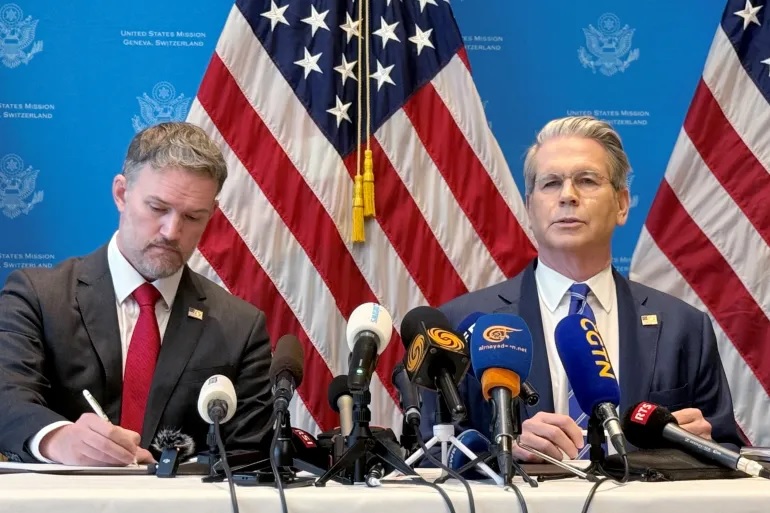US and Chinese trade negotiators have reached a tentative agreement to delay the escalation of tariffs, pending final approval from President Donald Trump.
The understanding was reached following two days of discussions in Stockholm.
There, officials acknowledged progress in preventing immediate trade deterioration, though significant disagreements remain unresolved.
The initial truce, established in mid-May, was set to expire on August 12.
However, both sides confirmed an extension has been agreed upon in principle, allowing more time for further dialogue.
China’s lead negotiator, Li Chenggang, emphasized the importance of continuing negotiations, although he refrained from specifying the length or exact terms of the extension.
On the American side, Jamieson Greer, the US trade representative, underscored that any extension or formal decision regarding tariffs would ultimately rest with President Trump.
“He will make the final call,” Greer stated, reiterating that no definitive action will be taken without presidential approval.
To strengthen the US negotiating position, Treasury Secretary Scott Bessent joined the discussions in Stockholm.
Despite his presence, the talks failed to produce any breakthroughs.
Bessent reportedly warned Chinese delegates about the implications of continuing oil imports from Russia, citing US legislation that could trigger severe secondary tariffs under sanctions laws.
Tensions between the two economic superpowers remain high.
China has responded firmly to Trump’s earlier tariff threats by implementing retaliatory duties on American goods and restricting exports of rare earth materials.
These are supposedly critical components for US defense and high-tech sectors.
This has added complexity and urgency to ongoing negotiations, with both nations seeking to avoid further economic damage.
President Trump, meanwhile, is poised to impose additional tariffs on imports from Mexico and Canada as early as Friday unless last-minute agreements are struck.
These developments add to the mounting pressure on both US negotiators and global trading partners.
Countries like Vietnam, Cambodia, and others in Southeast Asia are also actively seeking extensions or exemptions to delay increased US tariffs on their exports.
Historically, these negotiations have been lengthy and complex.
For example, the European Union’s trade commissioner, Maroš Šefčovič, had to engage in more than 100 hours of talks before the US agreed to lower its proposed 30% tariff on EU exports to 15%.
That agreement, finalized just this past Sunday, highlighted the slow and often fragmented nature of tariff negotiations with the US administration.
Trade experts have expressed concern about the lack of clarity and structure in many of the agreements coming out of Washington.
Pascal Lamy, former Director-General of the World Trade Organization, remarked that while recent deals may prevent immediate crises, they often lack comprehensive details and require further negotiation.
Describing the recent US-EU trade agreement, Lamy stated it was “not half-baked, but maybe just two-thirds baked”.
His comment suggesting that substantial elements still need to be clarified and agreed upon.
The global economic stakes are high.
On Tuesday, the International Monetary Fund (IMF) raised its global growth projection to 3%, up from its April estimate of 2.8%.
The modest improvement was attributed in part to the easing of some of Trump’s most aggressive trade threats.
However, the IMF also warned that any reversal or sudden spike in tariffs could pose a significant risk to global economic stability.
This underscores the fragility of current trade dynamics.
In the absence of a comprehensive resolution, the world’s largest economies remain locked in a complex and uncertain trade environment.
The recent agreement to extend the truce offers a temporary reprieve.
On the other hand, the final outcome continues to hinge on political decisions in Washington, particularly those of President Trump.
Until then, businesses, investors, and governments around the globe will remain watchful, hoping for a more stable and predictable trade landscape.







